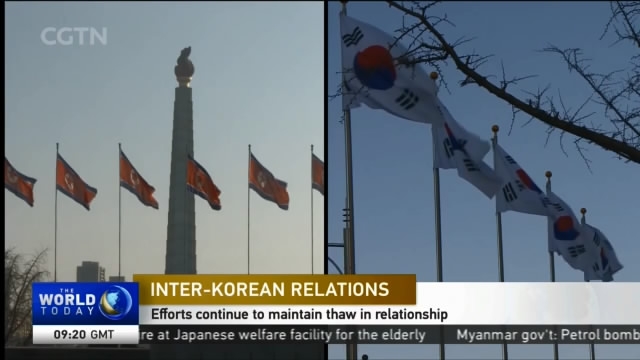
19:04, 01-Feb-2018
Inter-Korean Relations: Efforts continue to maintain thaw in relationship

The road to peace is never smooth, but the two sides are still hoping for a better result.
US Vice President Mike Pence has slammed the DPRK's scheduling of it's Army Day. He accused Kim Jong Un of "hijacking" the Games for personal propaganda. The South Korean government, however, rejected Pence's hijack theory and said the event will help defuse tensions over Pyongyang's nuclear and missile program. It also criticized some negative tones in media coverage, such as calling the Pyeongchang games the "Pyongyang Olympics". Kim Jong Un had pointed to reports like this as a key reason for cancelling cultural events.
South Korea has been walking on eggshells lately, as it tries to protect the fragile possibility of bringing peace back to the peninsula. Seoul has been taking active and efficient steps towards this ever since Kim expressed willingness to repair relations in his New Year's address.
South Korea's first step was to resume face-to-face, high-level talks. To do that, Seoul managed to restore a direct dialogue phone line with the DPRK that had been cut off in 2016.
Step two involved reassuring the DPRK of its sincerity. On January fourth, President Moon Jae-in spoke to US President Donald Trump. They decided to delay joint military drills till after the Games. Seoul also disputed a strong White House statement saying the US wouldn't postpone the drills.
Step three was to restore the "Korean" identity. The two sides have agreed to march together at the opening ceremony and form a joint Women's Ice Hockey team. South Korean athletes have also been training in the north with the DPRK delegation.

SITEMAP
Copyright © 2018 CGTN. Beijing ICP prepared NO.16065310-3
Copyright © 2018 CGTN. Beijing ICP prepared NO.16065310-3